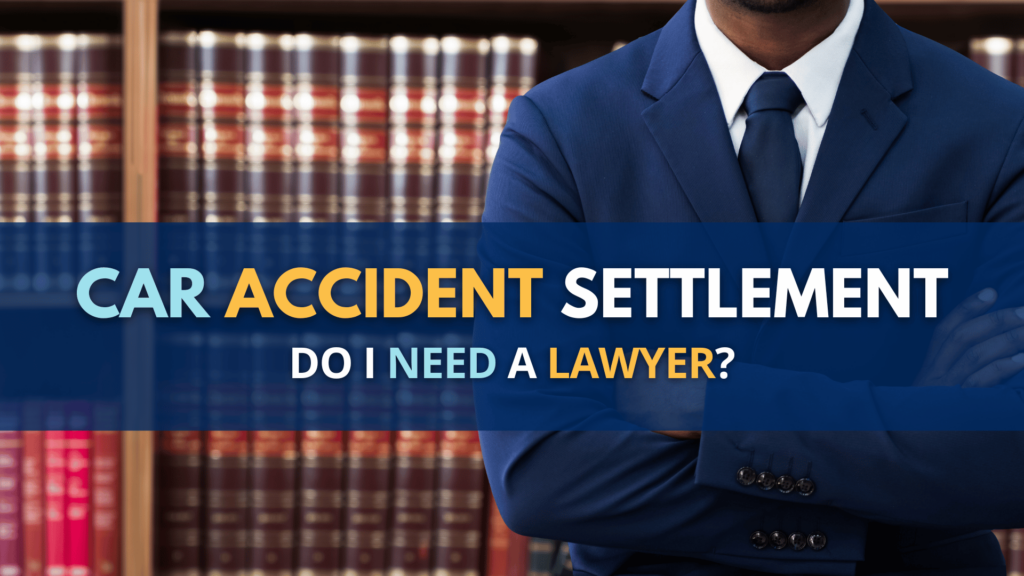When you’ve been involved in a car accident, the moments following the crash can feel overwhelming—especially if you’re injured or facing serious vehicle damage. After seeking medical attention and notifying your insurance company, one of the most important decisions you can make is hiring a car accident lawyer.
But what happens next?
Many accident victims aren’t sure what to expect after retaining legal counsel. The legal process can seem complicated, but understanding each step can bring peace of mind and help you make informed decisions. Here’s what typically happens once you’ve hired a car accident attorney to represent you.
1. Initial Consultation and Case Evaluation
Your lawyer begins with a thorough conversation to gather the facts. You’ll discuss:
- The details of the accident
- Your injuries and medical treatment
- Any police reports, insurance communications, or photos you’ve collected
- The impact on your daily life, work, and finances
This is also when the attorney evaluates whether you have a viable claim. If they agree to take the case, they’ll explain the terms of representation, usually under a contingency fee agreement—meaning you don’t pay unless they win or settle your case.
2. Investigation and Evidence Collection
Once the attorney formally takes on your case, their team begins a detailed investigation. This may include:
- Reviewing accident reports and photographs
- Interviewing witnesses
- Obtaining surveillance footage (if available)
- Requesting your medical records and bills
- Consulting with accident reconstruction experts or medical specialists
The goal is to build a strong foundation for your claim, backed by credible, organized evidence.
3. Communication with Insurance Companies
From this point on, your attorney becomes your voice. They’ll handle all communication with the insurance adjusters—both yours and the other party’s. This protects you from saying anything that could inadvertently harm your case.
Experienced attorneys know how insurers operate. They anticipate tactics designed to minimize payouts and ensure your rights are protected.
4. Demand Letter and Pre-Litigation Negotiations
Once your medical treatment is complete or your condition is stable enough to evaluate long-term impacts, your lawyer will draft a demand letter. This document outlines:
- The facts of the accident
- The extent of your injuries
- Medical expenses, lost wages, and other damages
- A specific amount you’re demanding in compensation
This kicks off negotiations with the insurance company. In many cases, skilled attorneys are able to reach a fair settlement during this phase—without going to court.
5. Filing a Lawsuit (If Necessary)
If the insurance company refuses to offer a reasonable settlement, your lawyer may recommend filing a lawsuit. This step doesn’t mean a courtroom trial is inevitable—it simply preserves your right to pursue full compensation.
The lawsuit is typically filed in civil court, naming the at-fault party (or their insurer) as the defendant. The filing sets the litigation process in motion.
6. Discovery Phase
After the lawsuit is filed, both sides enter the discovery phase. This is when lawyers exchange evidence, take depositions (recorded interviews under oath), and submit interrogatories (formal questions) to one another.
Discovery can be lengthy, often lasting several months, but it plays a crucial role in shaping the strength and direction of the case.
7. Mediation or Settlement Talks
Courts often encourage both parties to attempt resolution before trial through mediation—a structured negotiation facilitated by a neutral third party.
Your lawyer will represent you during mediation, working to secure a fair outcome without needing a court ruling. Many cases settle at this stage, especially if the evidence is in your favor.
8. Trial Preparation and Court Proceedings
If mediation fails and a settlement cannot be reached, the case proceeds to trial. Your attorney will prepare thoroughly by:
- Developing legal strategies
- Prepping witnesses and experts
- Organizing exhibits and trial materials
- Filing motions and responses with the court
At trial, your lawyer presents your case before a judge or jury. They argue on your behalf, examine witnesses, and challenge the defense’s narrative. After both sides present their case, the court issues a verdict.

9. Resolution and Payout
If you win at trial or reach a settlement beforehand, your lawyer ensures the compensation process goes smoothly. The funds typically cover:
- Medical expenses
- Lost income
- Property damage
- Pain and suffering
- Legal fees (taken from the settlement, per your agreement)
If you lose at trial, your lawyer may advise whether an appeal is appropriate.
CONCLUSION
Hiring a car accident lawyer is the first step in leveling the playing field against insurance companies and securing the compensation you deserve. While the legal process can be complex, a trusted attorney will guide you every step of the way—from gathering evidence and negotiating with insurers to representing you in court if necessary.
The most important thing you can do is stay informed, ask questions, and partner with a legal team that prioritizes your recovery—both physical and financial.
Need legal support after a car accident? Don’t wait to take action. The sooner a qualified lawyer begins working on your case, the stronger your chances of a favorable outcome.
Let me know if you want this formatted for your blog platform (like WordPress or Ghost), or if you’d like a version tailored to your location or law firm branding.

